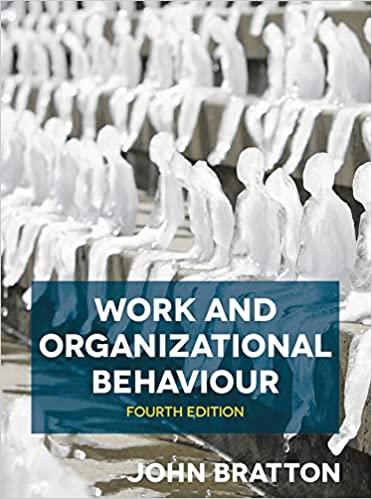2. How would each of the four qualities contribute to higher levels of self-regulation among work group
Question:
2. How would each of the four qualities contribute to higher levels of self-regulation among work group members? With the emergence of the idea of ‘positive psychology’, there has been a pronounced effort to shift research attention away from its traditional focus on abnormal or problematic patterns of human functioning, and towards the study of optimal functioning and human flourishing. This shift in attention away from the problematic and towards the optimal is evident in many fields of study – from organizational behaviour research to studies of marriage. For example, in a pioneering analysis of marriage dynamics, Fincham and colleagues argue (2007) that the traditional preoccupation with conflict in marriage must be corrected. Their article focuses on ‘naturally occurring marital self-repair processes’ (p. 282) and seeks to understand the mechanisms that enable some couples to bounce back from conflict while others separate or continue to live together unhappily.
Does this research on marriages have anything to tell us about group dynamics? Obviously, the differences between small work groups and marriages are fundamental, and there is no need to review those differences here. The question is, however, are there enough similarities between work groups and marriages to derive some insights into group dynamics from research on marriages? You be the judge. Consider the following synopsis of the work of Fincham and his colleagues
Step by Step Answer:







